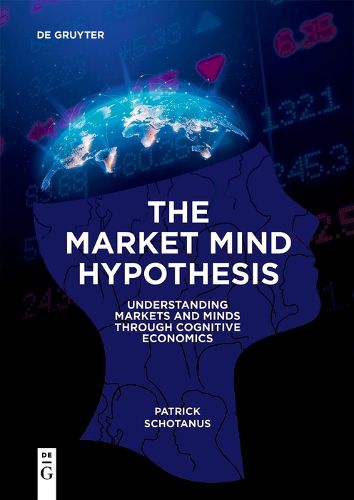Readings Newsletter
Become a Readings Member to make your shopping experience even easier.
Sign in or sign up for free!
You’re not far away from qualifying for FREE standard shipping within Australia
You’ve qualified for FREE standard shipping within Australia
The cart is loading…






This title is printed to order. This book may have been self-published. If so, we cannot guarantee the quality of the content. In the main most books will have gone through the editing process however some may not. We therefore suggest that you be aware of this before ordering this book. If in doubt check either the author or publisher’s details as we are unable to accept any returns unless they are faulty. Please contact us if you have any questions.
What is economics' missing link? Recent economic crises have had a devastating impact on society. Worryingly, they gravely risked a collapse of the financial system. These crises also painfully revealed economics' blind spots. Crucially, economics is not an innocent bystander but central to the problem.
In this pioneering book, Patrick Schotanus explains that economics' mechanical worldview is the ontological error which leads to flawed thinking and faulty practices. The Market Mind Hypothesis (MMH) thus calls it "mechanical economics": it not only erroneously views but also dangerously treats the economy as a machine, the market as an automaton, and its agents as robots. Inspired by heterodox economic and leading cognitive thinkers, this book offers an alternative paradigm. Central to MMH's psychophysical worldview is the fact that consumers, investors, and other participants are conscious beings and that their minds' extension makes consciousness a reality in markets, exemplified by market mood. Specifically, denial of the complex mind~matter exchanges as the essence of markets means the extended mind~body problem is economics' elephant in the room.
The book argues that if mechanical economics is the answer, we have been asking the wrong questions. Moreover, we will not solve our economic predicaments by doubling down on the assumption of rationality, nor by identifying yet another behavioural bias. Instead, scholars and students of economics and finance as well as finance practitioners need to investigate-through cognitive economics-the deep links between markets and minds to better understand both.
With a foreword by investment strategist Russell Napier, an intermezzo by neuroscientist and complexity pioneer Scott Kelso, and an afterword by 4E cognition philosopher Julian Kiverstein.
$9.00 standard shipping within Australia
FREE standard shipping within Australia for orders over $100.00
Express & International shipping calculated at checkout
This title is printed to order. This book may have been self-published. If so, we cannot guarantee the quality of the content. In the main most books will have gone through the editing process however some may not. We therefore suggest that you be aware of this before ordering this book. If in doubt check either the author or publisher’s details as we are unable to accept any returns unless they are faulty. Please contact us if you have any questions.
What is economics' missing link? Recent economic crises have had a devastating impact on society. Worryingly, they gravely risked a collapse of the financial system. These crises also painfully revealed economics' blind spots. Crucially, economics is not an innocent bystander but central to the problem.
In this pioneering book, Patrick Schotanus explains that economics' mechanical worldview is the ontological error which leads to flawed thinking and faulty practices. The Market Mind Hypothesis (MMH) thus calls it "mechanical economics": it not only erroneously views but also dangerously treats the economy as a machine, the market as an automaton, and its agents as robots. Inspired by heterodox economic and leading cognitive thinkers, this book offers an alternative paradigm. Central to MMH's psychophysical worldview is the fact that consumers, investors, and other participants are conscious beings and that their minds' extension makes consciousness a reality in markets, exemplified by market mood. Specifically, denial of the complex mind~matter exchanges as the essence of markets means the extended mind~body problem is economics' elephant in the room.
The book argues that if mechanical economics is the answer, we have been asking the wrong questions. Moreover, we will not solve our economic predicaments by doubling down on the assumption of rationality, nor by identifying yet another behavioural bias. Instead, scholars and students of economics and finance as well as finance practitioners need to investigate-through cognitive economics-the deep links between markets and minds to better understand both.
With a foreword by investment strategist Russell Napier, an intermezzo by neuroscientist and complexity pioneer Scott Kelso, and an afterword by 4E cognition philosopher Julian Kiverstein.